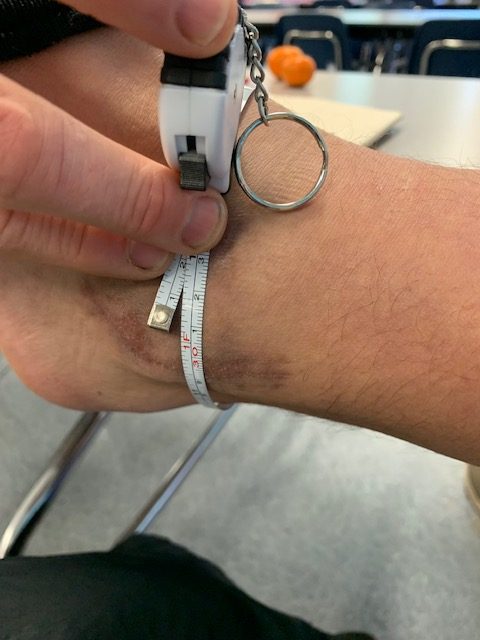Can I Get a Permanency Rating Before I Get My Hip, Knee or Shoulder Replacement?
Can I get a permanency rating before I get my hip, knee or shoulder replacement?
The short answer is “yes.”

Experienced workers compensation lawyer Doug Landau notes that if an injured worker had a leg amputation, even with a prosthetic device, they still have had a 100% loss of the limb. Therefore, they should get 100% permanency benefits for the loss of that leg. This was reaffirmed at the Virginia Workers’ Compensation annual educational conference at the Richmond Convention Center in October 2019. The Abrams Landau workers comp law team attended the convention, including a session that talked about the fact that modern medical science has state of the art implants, artificial limbs, lenses and other devices to improve functionality.
However, the permanency rating is based upon the injured location BEFORE the addition of any prosthetic or other man-made technology. Furthermore, as hip, knee and shoulder replacements sometimes wear out and need to be fixed and/or replaced, it would be unfair to the injured worker to make them wait until all those procedures have been completed.
Attorney Landau states, “The law requires that the injured worker reach a plateau, or what is called ‘maximum medical improvement‘ before the treating or other doctor gives a numerical permanency reading.” But Landau generally advocates for the ratings to be under the 4th or 5th Edition of the AMA Guidelines to Disability. On the other hand, the insurance companies seek ratings under the much stricter 6th Edition. Lawyer Landau notes that the 6th Edition was fraught with problems and the subject of a large correction packet, which most doctors do not want to take the time to read over and implement.
Both the Virginia and D.C. Workers’ Compensation law provides for not only loss of strength, range of motion and sensation, but also loss of hearing and vision. Additionally, an injure worker can also get payments for severe market disfigurement in scarring. However, an injured worker may not get a permanency rating for scarring to the arm if they are also seeking orthopedic permanency for the reduced range of motion, strength, etc.
In order to get a permanency Award, the worker needs to see their doctor and get a written report that indicates that they have reached “maximum medical improvement” and that the permanent impairment rating is a result of the on-the-job injury. If an injured worker had prior permanent loss to the same arm, then the doctor should subtract the pre-existing permanency from the new permanency finding, so that a workers’ compensation judge can make a fair decision.
Oftentimes, if the treating physician gives a large numerical rating, the insurance company will spend the money to get a “defense medical exam” from a doctor of their choosing. While the workers’ compensation insurance companies have to pay for the appointment AND the transportation to get the injured worker there, the ratings are usually so low that they save a lot of money if the judge splits the difference, or even leans toward the insurance medical examiner.
It is important to show the objective signs and symptoms to the doctor, such as swelling, disfigurement, discoloration, loss of range of motion, noise in a joint, whether the area is hotter or colder to the touch, and whether there are spasms or other involuntary movements. Pain is also important, and some doctors will send injured workers for “functional capacity evaluations” (FCE) to get objective data from physical therapists upon which to base their permanency ratings.Many cases settle after permanency ratings are given and the insurance company knows the numbers from which their exposure to have to pay money will be based. Landau says, “Sometimes the permanency rating exam costs more money than the likely Permanent Partial Disability benefits (PPD), so it is also an economic decision for the claimant.”
If you or someone you know was severely injured due to no fault of your own, and there are permanent injuries and questions about the case, please give us a call (703-796-9555) or email us at Abrams Landau, Ltd.
